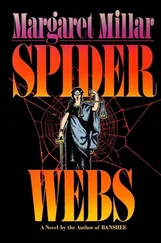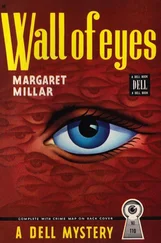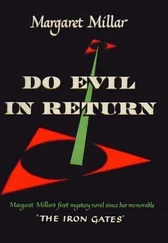The two women looked at each other as if through the periscopes of enemy submarines across a fathomless and crawling sea. Then Mrs. Hamilton turned away with a sighing sound. “Yes. Yes, Virginia.”
“Paul didn’t know anything about the murder or about the arrangement with Loftus. Did he, Momma?”
“No, dear. Nothing at all.” She held her hands together on her lap, as she would hold two small restless animals to force quiet upon them. “I met Loftus at 4:30 at the bus stop. I had the money with me. I’d cashed six travelers’ checks, at three different banks to avoid unnecessary questions or suspicions. I phoned Alice and told her I was going to a double feature and asked her to invite you for tea, Mr. Meecham. It was Loftus’ idea to have you there when he — when he put on his act. I think he wanted to try it on you first before he talked to the Sheriff.”
“Like an out-of-town tryout,” Meecham said. “Well, it worked.”
“Yes, everything worked out very well. Until last night, when I heard from Hearst. He came here to the house and we talked. And I knew then that I had to get Virginia away from this town. Whether she was innocent or guilty, perhaps I would never know. Her memory might be sealed forever, or she might wake up from a dream some night and it would all be sharp and clear in her mind. Look at her, Mr. Meecham. Look at my pretty girl. Somewhere behind those soft eyes there’s a record of everything she has ever seen or touched or heard or felt or done. It’s all there, but out of context, out of time, out of range.”
Virginia stared at her mother with eyes that were not soft at all. “You talk about me as if I was a child or a psychopath.”
“You are my child.”
“Am I?”
Though the two women sat within touching distance of each other, Meecham felt that there was a great space between them, an expanse of sea too violent to sail, of land too mountainous to cross, and of years too long to remember.
Mrs. Hamilton reached out, across the expanse. “Virginia...”
“If I have a dream some night, I will never tell you about it,” Virginia said. “I promise.”
“My dear...”
“I’ll never tell anyone.”
“I... yes. Yes, perhaps that’s the best way.” She looked at Meecham. “What will happen now, Mr. Meecham?”
“You’ll have to call the Sheriff.”
“I see. What then?”
“He’ll decide what action to take. You’ve withheld evidence concerning a murder. That’s a felony.”
“Is it? Fancy that, I’ve committed a felony. Willett will be very surprised,” she said, almost gaily. “Well then, I suppose the next step is to hire a lawyer.”
“Yes.”
“But not you, Mr. Meecham.”
“That’s right,” Meecham said with a slight smile. “Not me.”
“I feel you’re very tired of us all. You think we create difficulties where none exist, that our troubles aren’t as real as broken legs or measles, or something you can see.” She rose and went to the door. “You’ll take care of Alice?”
“I’ll try.”
“Alice is a good girl,” she said, thoughtfully. “I wish I knew how... Well, I’ll go and phone the Sheriff. You needn’t wait, Mr. Meecham. Good night.”
“Good night.”
He walked out the door and down the hall. He didn’t look back but he knew she was watching him. He could feel her eyes on the back of his neck, cold and painful as the touch of ice.
Alice was waiting for him in his car, a black scarf covering her bright hair, so that he didn’t see her until he opened the door.
“Hello,” Meecham said.
“Hello.”
“Going anywhere?”
“Anywhere at all,” she said. “Wherever you go.”
“All right.” He let the car coast down the driveway to the street. He felt an intense activity inside his body, like hundreds of wheels turning in all directions. He was almost afraid to speak because of what the wheels might do to his voice. But when he finally spoke he sounded quite calm and detached. “I’m going home.”
“Then that’s where I’ll go too.”
“Maybe you’d better not.”
“I’m twenty-three,” she said with naive pride, as if twenty-three was a very special age that conferred great wisdom and rightness on its wearer.
“I was twenty-three once too,” Meecham said, “along with a lot of other people. I often made mistakes.”
“I won’t.”
The traffic in the center of town was congested with cars that slid ghostlike along the streets, and students bundled like mummies against the cold. The bell tower was striking 9:15 when Meecham stopped the car in front of a small white duplex.
Hand in hand, they walked across the unshoveled sidewalk and up the porch steps of the right side of the duplex. A card above the doorbell said Eric Meecham. Two bottles of milk stood in a drift of snow outside the door. The milk had frozen and grown out of the tops of the bottles like strange white fungus that springs up overnight after a summer rain.
“I guess I forgot to bring in the milk,” Meecham said.
“Does it always do that in the winter?”
“When it’s very cold.”
“It looks funny. I’ll have to get used to a lot of different things, won’t I, Meecham?”
“Yes.” He tried to unlock the door but the key stuck and wouldn’t move. He made three attempts before the door finally opened and a warm draft of air swept out to meet them like a friendly hostess.
Meecham turned on the hall light. “It’s not very clean, I guess. It looks clean enough to me, but to a woman...”
“It’s very clean.”
“Is it?”
“I don’t see how it could be any cleaner, really. I... Oh, Meecham. Frozen milk and the place being clean — what does anything matter ?”
He untied the scarf that was knotted under her chin and it fell soft and unnoticed to the floor like a leaf.
“You’re beautiful, Alice.”
“Oh, I hope so. I couldn’t live if you didn’t like the way I looked.”
She was clinging to him with all her strength, like a vine that had been growing alone and whose seeking tendrils had at last touched a tree. He held her tightly in his arms and kissed her, and the wheels inside him began to move with such furious speed that their noise whirred and pounded in his ears. When the telephone rang he hardly recognized it at first as a new and separate sound, but its sharp insistence gradually penetrated his mind like a pain.
Alice stirred in his arms and shook her head as if to shake off the intrusion. “I guess — that’s the phone.”
“Let it ring,” he said.
“Do other women call you very often?”
“Sometimes.”
The telephone continued to ring, five, six, seven times.
“You could answer,” she said, “and then if it’s another woman tell her you’re very busy and you’ll be busy for a long time.”
“How long?”
“Years. Forever.”
“All right.” He picked up the phone from the hall table. His hands were shaking and his knees felt weak. “Hello.”
“Is that you, Mr. Meecham?”
“Yes.”
“This is me, Victor Garino. You remember?”
“Of course. Where are you?”
“Here at home, in Kincaid. I’ve been trying to reach you ever since before supper. Mama and me, we’re having a bad time with Mrs. Loftus. It’s about the money.”
“What money?”
“The rest of Earl’s seven hundred dollars. You shouldn’t have sent it to her, Mr. Meecham.”
Meecham felt the inside breast pocket of his coat. The envelope containing the rest of Loftus’ money was still there.
“She’s going wild,” Garino said. “Buying not just liquor but everything, everything she sees. Records, dozens of records, and nothing to play them on. And a dress for Mama, a great big dress so big Mama could get into it twice. And for me, a new hat and a lamp and a case of wine, a whole case...”
Читать дальше
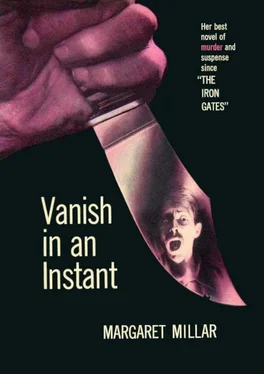

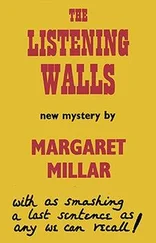
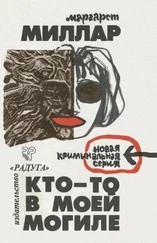
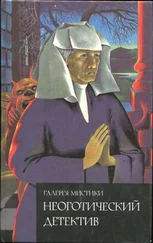
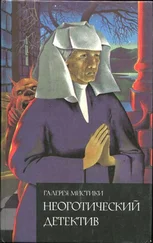

![Маргарет Миллар - Rose's Last Summer [= The Lively Corpse]](/books/384369/margaret-millar-rose-s-last-summer-the-lively-c-thumb.webp)
